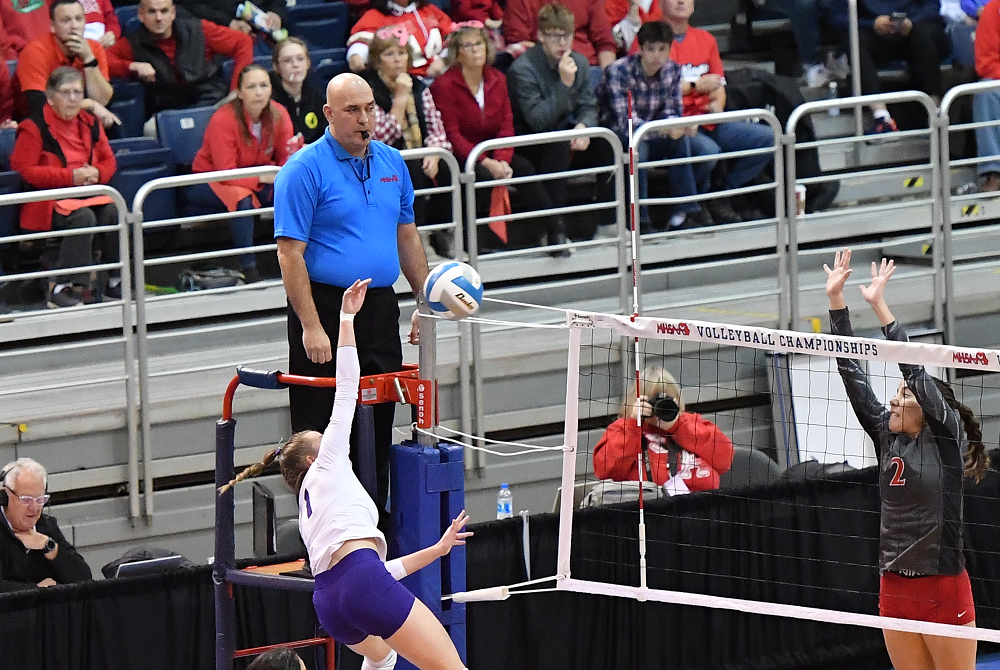
Be the Referee: Uncatchable Pass
September 20, 2018
This week, MHSAA Executive Director Mark Uyl explains the differences between high school and college and pro rules when it comes to an uncatchable pass.
Be The Referee is a series of short messages designed to help educate people on the rules of different sports, to help them better understand the art of officiating, and to recruit officials.
Below is this week's segment – Uncatchable Pass - Listen
Today we’re going to talk about one of the most misunderstood rules at the high school level, and that deals with the uncatchable pass.
All of us have sat in front of our televisions on Saturday or Sunday and seen the long pass get thrown, followed immediately by the throwing of the flag. As the officials discuss what happened, the referee invariably clicks on the microphone and announces that there is no foul for pass interference because the pass was uncatchable.
At the high school level, that is not a factor in deciding whether or not pass interference has occurred. The ball does not have to be catchable, and if the contact is ruled as pass interference, that foul stands, regardless of the quality of the pass.
Past editions
September 13: Soccer Rules Change - Listen
September 6: You Make the Call: Face Guarding - Listen
August 30: 40-Second Play Clock - Listen
August 23: Football Rules Changes - Listen

Be the Referee: Registration Process
By
Sam Davis
MHSAA Director of Officials
September 26, 2023
Be The Referee is a series of short messages designed to help educate people on the rules of different sports, to help them better understand the art of officiating, and to recruit officials.
Below is this week's segment – Registration Process - Listen
We talk a lot about the need for registered officials. But how do you sign up? What does it take to become a referee, umpire, or judge?
The steps are simple. Go to MHSAA.com to the “Officials” tab and identify the sport or sports you are interested in. Next, complete the MHSAA Principals of Officiating and the Officials Guidebook Exams.
The Officials Guidebook covers basic elements and procedures for becoming a sports official. This first step of the process covers playing rules, ejection protocols, game assignments, and payment of game fees.
Once you pass the exams, it’s time to connect with a locally-approved officials association. The local associations are the ones that provide the training – whether it’s on the court, on the field, on the mats, or video training – to get that person completely immersed in the rules, mechanics, and coverages of what it takes to become a good official.
Previous Editions
Sept. 20: Animal Interference - Listen
Sept. 13: Feet Rule on Soccer Throw-In - Listen
Sept. 6: Volleyball Jewelry - Listen
Aug. 30: Football Rules Similarities - Listen
Aug. 23: Football Rules Differences - Listen
(PHOTO by Gary Shook.)

